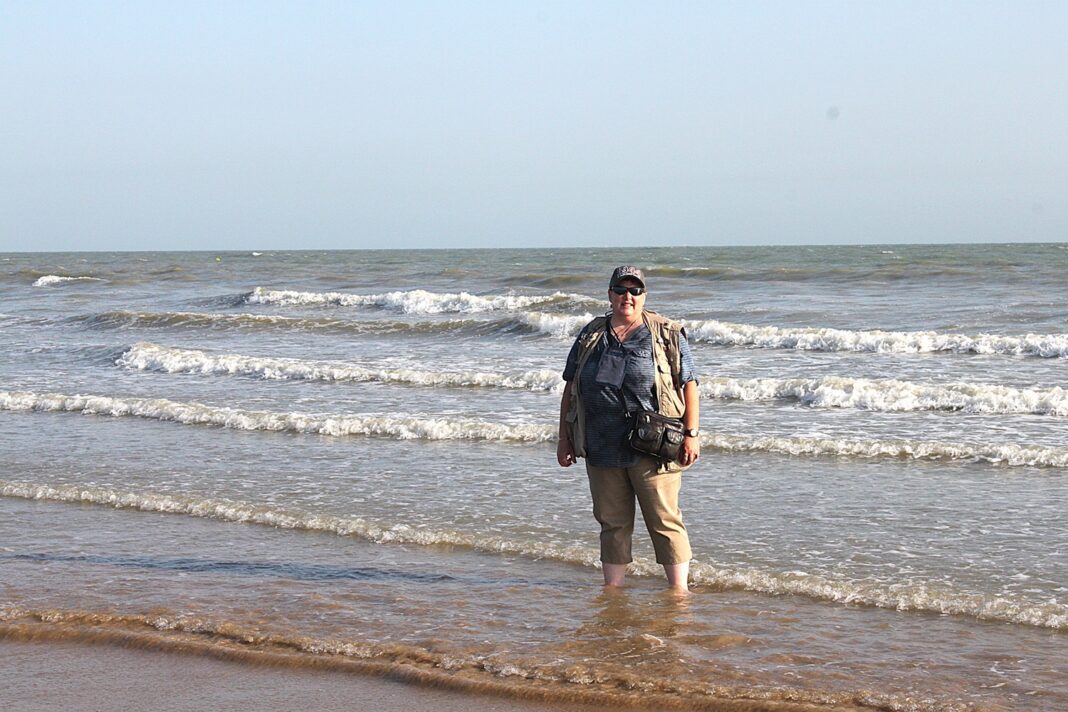Belinda Wilson recalls walking into the Ardenne Abbey, near Caen, France, during the 2013 Royal Canadian Legion Ontario’s Pilgrimage of Remembrance tour.
“I just felt such evil and such overwhelming fear,” she said. “I didn’t know what had happened in this place, but I knew it was something awful.”
In June 1944, 20 Canadian soldiers were massacred in the abbey’s garden.
During orientation, Wilson learned the terrible history of the place and said it stuck with her. So much so, that it was the first song she wrote upon returning to Canada.
She was working on another tune at the time, but “all a sudden this song just pushed its way out; just fell out of my head.” This despite the fact she had been resisting it, since it brought back horrible memories and feelings. “But I couldn’t help it and so I wrote it.”
The events at Ardenne Abbey were part of the Normandy Massacres, a series of scattered killings during which up to 156 Canadian prisoners of war were murdered by soldiers of the 12th SS Panzer Division during the Battle of Normandy.
“Every time I sing that song, 11 years later, it still affects me,” she said.
Wilson has had people with ancestors from the massacres approach her after speaking engagements. When she apologizes, they inevitably tell her they were glad she performed it, as “it keeps them alive.”
Wilson, from Coboconk, presented ‘In the Footsteps of Heroes’ Nov. 3 at the Irondale Church. She is a Legion supporter, and military history enthusiast. The talk was part of the Service, Courage, and Sacrifices series presented by Bark Lake Cultural Developments.
Despite joining the pilgrimage in 2013, Wilson is still speaking about her experiences. She thinks she is up to 75 public engagements across Ontario, when most stop presenting after two years – when the next pilgrimage takes place.
The pilgrims go to Canadian battlefields, memorials, and cemeteries, with her trip mostly in Belgium and northern France, with a quick foray into the Netherlands.
“I always start off by telling people I am not a historian. I’m not here to give them a history lesson. If they want a history lesson, they can Google it. What I try to do through my photos, stories, songs, is help them to understand how I felt at these different places and try to evoke the importance of these stories, and of sharing these stories.”
She said every presentation is one-of-a-kind because people react, and interact, differently afterwards. People bring their own stories and memorabilia.
As a songwriter, she expresses uniquely about her experiences. “I knew there were songs to be written when I got back.”
She’ll also remember the number of times people thanked them. She recalls that at Dieppe, “people were coming up and even if you didn’t understand French, you knew what they were saying anyway. They were saying ‘thank you’, and they were trying to tell you about their grandfather, who took a Canadian soldier and hid him in a barn; their mother who prepared some quick meals when Canadian soldiers were trying to escape the Nazis. It was just ‘thank you, thank you, thank you’, and it just makes you so humble as a Canadian to be on the receiving end of that kind of gratitude.
“It’s ingrained in them, generation after generation, It’s not an obligation. It’s not something you have to do, it’s something you want to do because you feel it’s necessary, that debt can never be repaid in their opinion.”
Wilson’s message for this Remembrance Day – with the ranks of Second World War veterans nearly gone?
“Any of them who are left, find out as much as you can from them; some of them are now starting to talk about it when they wouldn’t 20-30 years ago. Hold fast to those stories. Listen to what they’re saying. Listen to how they’re saying it. Watch their eyes. So much can be told by a person’s eyes because sometimes they’re not telling you the whole story because maybe it’s too gory or maybe they don’t think it was that big a deal because they survived.
“If you have the privilege of encountering a veteran, stick out your hand and say ‘thank you’.
She quotes from the lyrics of her abbey song, “another story to tell, tell the people, tell the children, remember them well.”





